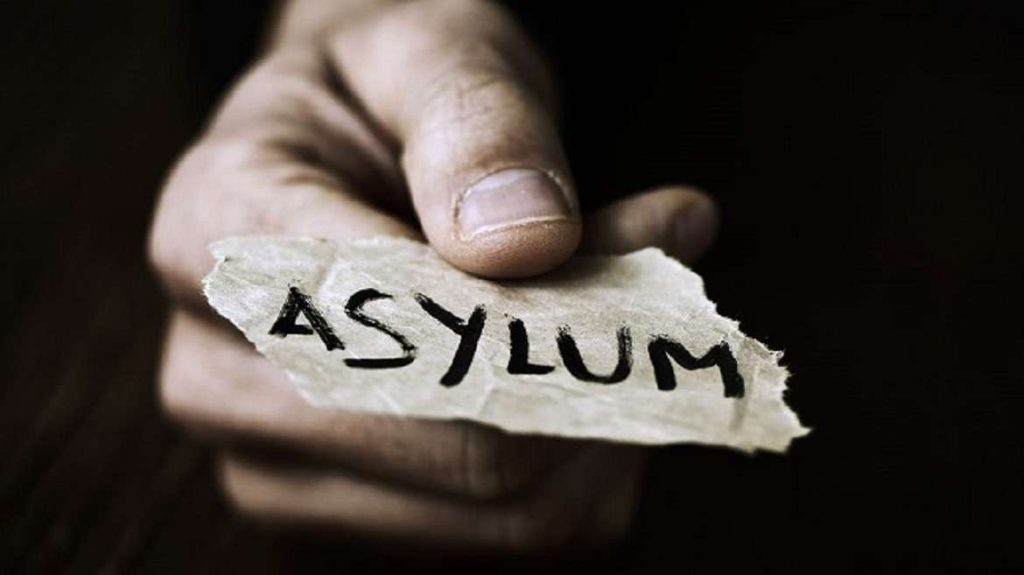(NA)
In its new report “No Way In or Out: Authoritarian Controls on the Freedom of Movement,” Freedom House, highlights authoritarian states’ growing use of mobility restrictions as a tool of repression. Immigration restrictions enacted by liberal democracies contribute to the problem; authoritarian regimes aren’t the only ones that enact unjust mobility restrictions. Here’s a summary of the Freedom House report’s findings:
At least 55 governments around the world restrict freedom of movement in order to punish, coerce, or control people they view as threats or political opponents.
The four main tactics for controlling mobility are revoking citizenship, document control, denial of consular services, and travel bans.
Restrictions on the freedom of movement can be a less visible form of authoritarian control. They are often informal or imposed arbitrarily, leaving targets without a means to effectively challenge them. Restrictions are also frequently combined with other forms of repression, including asset seizures, smear campaigns, and bogus criminal charges.
The impacts of coercive mobility controls are severe and far-reaching—including the loss of legal status, family separation, inability to pursue educational or professional opportunities, and psychological distress. They interfere with people’s ability to express dissent and participate in prodemocracy activism, and signal to would-be government critics that they may face similar consequences.
Democratic governments should seek to hold those applying these tactics accountable, and review their own migration policies to ensure that they do not contribute further to the hardship inflicted on individuals facing coercive restrictions on their freedom of movement.
The report includes a variety of recommendations, including that democratic “Governments should review migration and asylum policies to ensure that they do not contribute to the hardship inflicted on individuals facing coercive mobility restrictions. This includes avoiding penalizing individuals who are unable to produce a valid national passport due to the application of mobility controls with fines, obstacles to education or health care, or restrictions on the ability to register newborn children or marriages.”
I endorse these ideas. But they only address the tip of a much larger iceberg of policies enacted by liberal democratic governments that end up reinforcing authoritarian repression. The most important is that migration restrictions exclude many people fleeing authoritarian repression. The right to exit an authoritarian state is worth little if not coupled with the right to enter a freer society.
Most democracies do have laws granting asylum to people who qualify as “refugees.” But the legal definition of “refugee” embedded in international and US law is a very narrow one that excludes many people fleeing terrible violence and oppression. It only covers people whose “life or freedom would be threatened on account of [their] race, religion, nationality, membership of a particular social group or political opinion.” This effectively excludes may who are fleeing what I have called “equal-opportunity” repression and violence, doled out to everyone who lives under the rule of an oppressive government, as oppose to just members of specific defined social groups.
Even many people who meet legal definition of “refugee” are often expelled under rules like the Biden Administration’s new asylum policy, which bars most migrants crossing the border from trying to apply for asylum, including many who might have a strong legal case. Many Republicans advocate even more severe asylum and migration restrictions. They seek to shut down legal pathways of migration for people fleeing brutal repression, including at the hands of socialist regimes conservatives rightly condemn, like those of Cuba and Venezuela. Opening Western doors to migrants fleeing repression is both the right thing to do, and a good way to boost our economies, and reduce budget deficits.
Liberal democracies’ mobility restrictions are generally not as bad as those of authoritarian states. But our governments are not as far superior to theirs as they should be, and there is plenty of room for improvement. We can start by expanding the definition of “refugee” to cover all people fleeing oppression and violence, and ending other arbitrary restrictions on asylum rights. Giving asylum seekers the right to work legally would also help.
The post Freedom House Report Highlights Use of Mobility Restrictions as a Tool of Repression appeared first on Reason.com.







